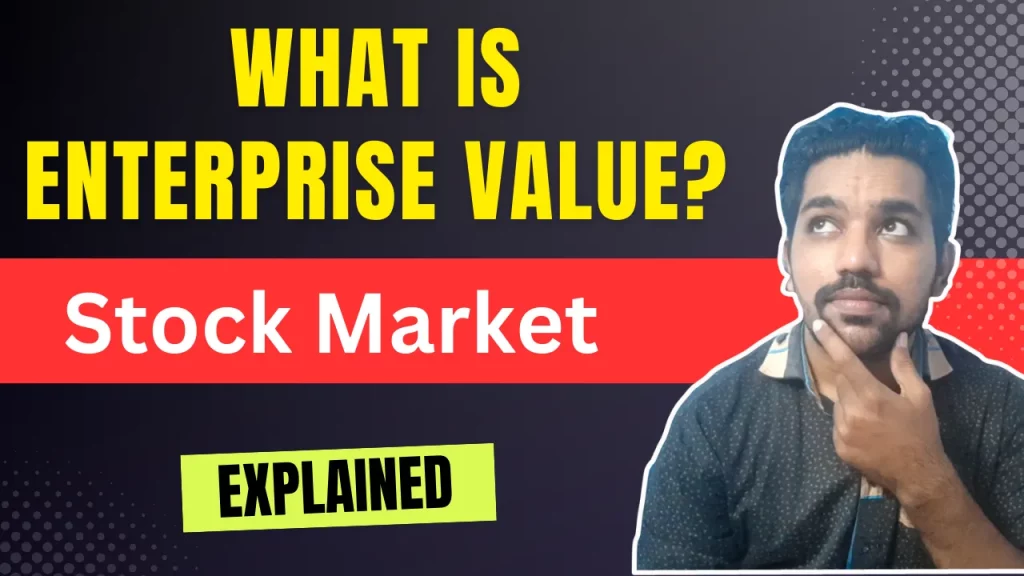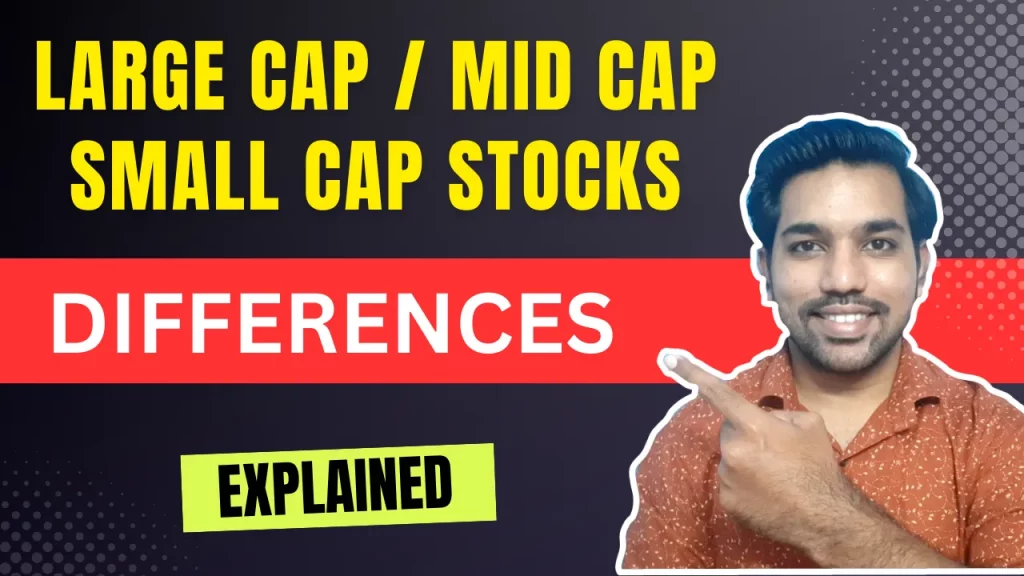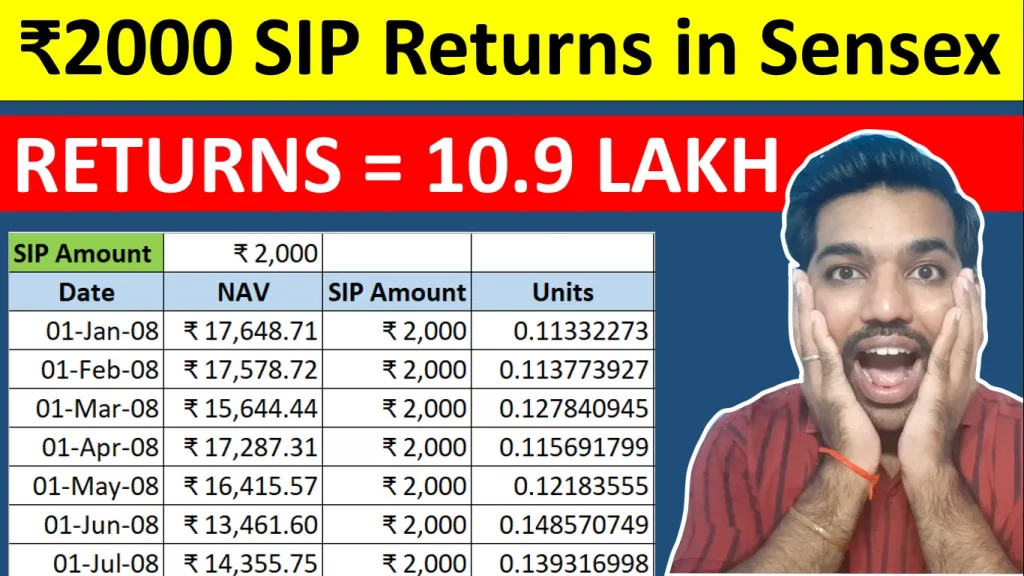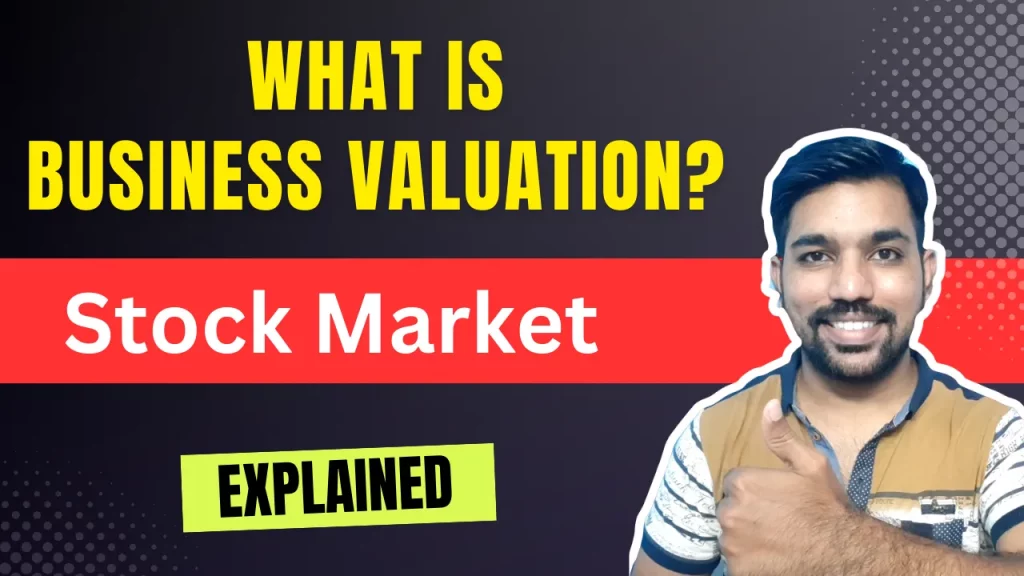Enterprise Value or EV is one of the important factors to value a firm during acquisitions or mergers. EV defines the actual worth of the firm or company while the acquirer wants to buy the firm or company. EV considers market cap of the company, total debt and cash equivalents. It is a better alternative for market capitalization of the company since EV considers debt and cash equivalents as well.
Let us understand what is Enterprise Value of a firm in detail.
What is Enterprise Value?
- Enterprise Value or EV is the actual worth of the company or firm
- EV considers market cap, total debt of the firm and cash equivalents
- Since market capitalization only considers the stock price and total number of shares of the company, based on investor’s sentiments, the market cap can go up and down while the stock prices fluctuate
- When there are acquisitions or mergers, other companies use EV to determine the actual worth of the company or firm they want to buy
- Total debt is considered since after the merger, the acquirer have to pay all the pending debt of the company that is acquired
- So the limitation of market cap of the company regarding the total debt to be considered is solved by the Enterprise Value or EV
Below is the formula for calculating Enterprise Value of a firm.
Enterprise Value Formula
Enterprise Value (EV) = Market Capitalization + Total Debt - Cash or Cash EquivalentsIn above formula:
- Market Capitalization: current stock price multiplied by total number of outstanding shares of the company. This is considered since this is the investors money raised for company’s expansion and growth purpose
- Total Debt: includes short term debt and long term debt of the firm. This debt is added to market cap, since the acquirer have to pay the debt after acquiring the company
- Cash or Cash equivalents: The liquid cash available with the company needs to be subtracted, since it will be taken away by the old owners of the firm
So above formula helps to calculate Enterprise Value of the firm which is an alternate factor to consider for market cap while comparing companies in same industry.
ALSO READ: What is Business Valuation
EV Calculation Example
Let us consider an example where 2 companies have same market cap but might have different EV values:
| Items | Company A | Company B |
|---|---|---|
| Stock Price | Rs. 100 | Rs. 500 |
| Number of Shares | 10000 | 2000 |
| Market Cap | Rs. 10,00,000 | Rs. 10,00,000 |
| Total Debt | Rs. 5,00,000 | Rs. 3,00,000 |
| Cash and Cash Equivalents | Rs. 1,00,000 | Rs. 2,00,000 |
| Enterprise Value (EV) | Rs. 14,00,000 | Rs. 11,00,000 |
As seen above, both companies A and B have same market cap, but since their total debt and cash equivalents are different, the actual worth of the company is different.
You would pay Rs. 11 lakh to acquire Company B based on above numbers, compared to Company A for which you have to pay Rs. 14 Lakh.
This is a simple example to understand EV, and we have not considered multiple other factors which are used during actual acquisitions.
Enterprise Value vs Market Cap
Enterprise Value is significantly different than market capitalization, since EV considers total debt and cash equivalents of the firm. EV is the more accurate factor while any company want to buy or acquire another company, since total debts and cash equivalents need to be considered.
Due to the limitation of market cap, which does not include total debt and only considers the investors contribution based on current stock price, Enterprise Value can be used as an alternative to know the actual worth of the company or firm during mergers or acquisitions.
Below is the formula for Market Cap
Market Cap = Stock price * Total Number of SharesEnterprise Value as Valuation multiple
There are few valuations multiples you can use based on the Enterprise Value or EV. Some of them are listed below:
EV / EBITDA
EBITDA full form is Earnings before Interest, Taxes, Depreciation and Amortization, which considers all the expenses after calculating the earnings.
EV contains the actual worth of the company and can be related to EBITDA or the earnings of the company while considering expenses.
EV / EBITDA tells us how much worth of the company helps to get Rs. 1 of EBITDA. If it is below 10 than its a good value. Higher the value means, the company is not able to generate enough earnings based on its EV.
EV / Sales
Another valuation multiple is Enterprise Value / Sales. It tells us how much worth of company is required for Rs. 1 sale of the goods or services. Lower the value, better is the sign of company having good financial health.
EV / Sales can be negative if company is having more cash compared to it’s market cap and total debt together.
Negative EV value means the company is not able to use it’s cash effectively to buy more assets or to expand for increase in growth.
ALSO READ: Top 6 Financial Ratios
Limitations of Enterprise Value
There are certain limitations of EV
- EV needs to be compared with companies within same industry. Some companies might be capital intensive and need high debt for their operations and expansion projects, such companies might have high EV, so it is better to compare the companies within same sector
- A company’s EV can also be negative when the cash equivalents are higher than the market cap and total debt of the company. This means that the company is not able to use the cash effectively to buy more assets and carry out expansion projects
Enterprise Value vs PE Ratio
PE ratio is the price to be paid for Rs. 1 earnings per share of the company. Below is the formula for PE Ratio:
PE Ratio = Stock Price / Earnings per share (EPS)In above formula, total debt of the company is not considered whereas in Enterprise Value, total debt of the company is considered for calculations and finding the business worth.
ALSO READ: What is Cash Flow Statement
Conclusion
So Enterprise Value or EV can be considered an alternative to market cap while finding the actual worth of the company or the firm. EV considers total debt of the firm which is an important factor during mergers and acquisitions of the firm.
We can use the valuation multiples such as EV / EBITDA and EV / Sales while taking the decision to select stocks for our investments. Both the multiples should be low which indicates good financial health.
EV can be negative when the firm is not using the cash efficiently for growth projects.
Some more Reading:
Frequently Asked Questions
What do you mean by enterprise value?
Enterprise Value or EV is the actual worth of the company or firm which is used during mergers or acquisitions. It is calculated by adding market cap to total debt and subtracting the cash equivalents.
What is the formula for EV?
Below is the formula for EV:
Enterprise Value (EV) = Market Capitalization + Total Debt - Cash and Cash equivalentsWhat does enterprise value mean?
EV means how much amount you have to pay today to buy a firm or company, considering it’s market cap, total debt and cash equivalents
How do you calculate total enterprise value of a firm?
We can easily calculate the total EV of a firm by adding the market cap of the firm to total debt and subtracting the cash equivalents.
Save Home Loan Interest Amount!
Use Home Loan Excel Calculator that will help you to Save Interest Amount on Home Loan EMI.
Click below button to download Home Loan EMI and Prepayment Calculator in Excel:
Watch how Home Loan Calculator in Excel Works
Income Tax Calculator App – FinCalC
For Income Tax Calculation on your mobile device, you can Download my Android App “FinCalC” which I have developed for you to make your income tax calculation easy.
What you can do with this mobile App?
- Calculate Income Tax for FY 2025-26 and previous FY 2024-25
- Enter estimated Investments to check income tax with Old and New Tax Regime
- Save income tax details and track regularly
- Know how much to invest more to save income tax
- More calculators including PPF, SIP returns, Savings account interest and lot more

Use Popular Calculators:
- Income Tax Calculator
- Home Loan EMI Calculator
- SIP Calculator
- PPF Calculator
- HRA Calculator
- Step up SIP Calculator
- Savings Account Interest Calculator
- Lump sum Calculator
- FD Calculator
- RD Calculator
- Car Loan EMI Calculator
- Bike Loan EMI Calculator
- Sukanya Samriddhi Calculator
- Provident Fund Calculator
- Senior Citizen Savings Calculator
- NSC Calculator
- Monthly Income Scheme Calculator
- Mahila Samman Savings Calculator
- Systematic Withdrawal Calculator
- CAGR Calculator
I’d love to hear from you if you have any queries about Personal Finance and Money Management.
JOIN Telegram Group and stay updated with latest Personal Finance News and Topics.
Download our Free Android App – FinCalC to Calculate Income Tax and Interest on various small Saving Schemes in India including PPF, NSC, SIP and lot more.
Follow the Blog and Subscribe to YouTube Channel to stay updated about Personal Finance and Money Management topics.





